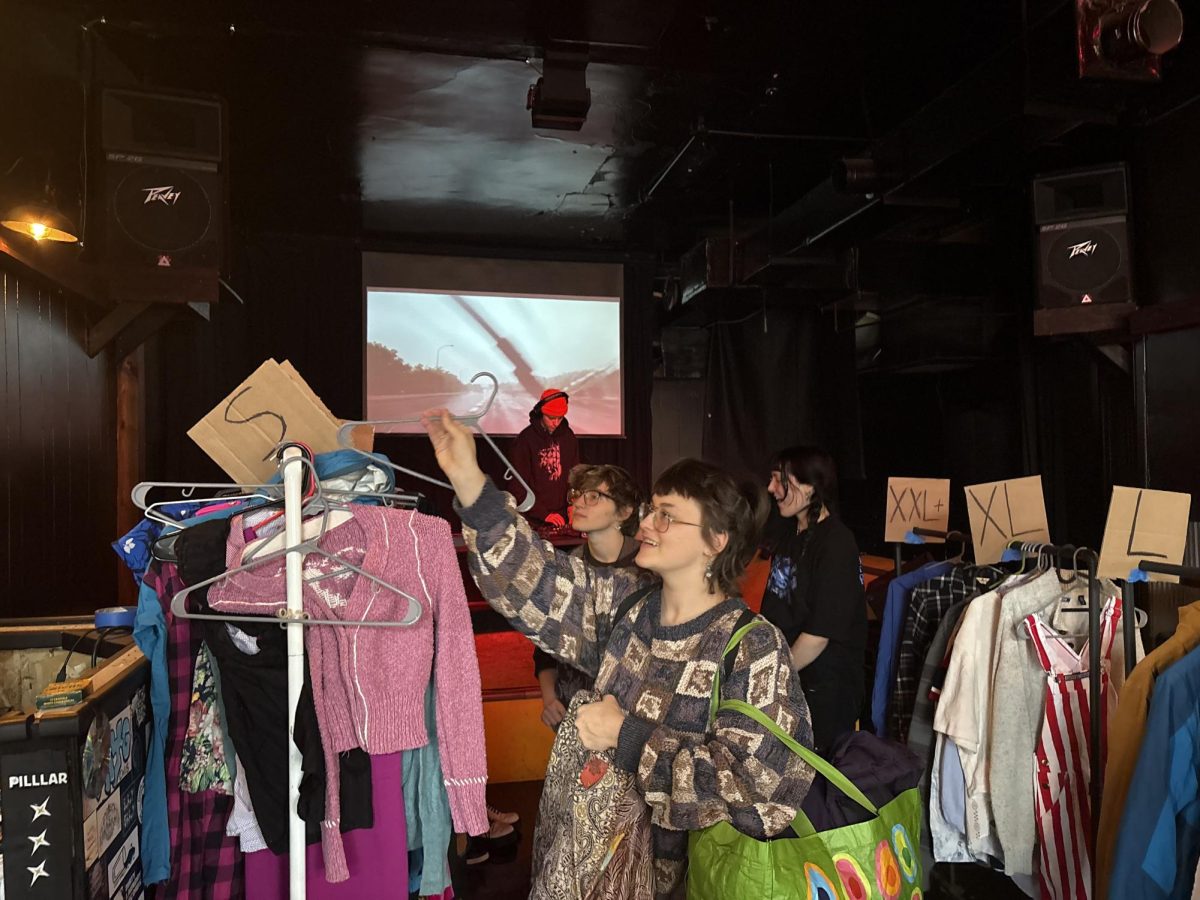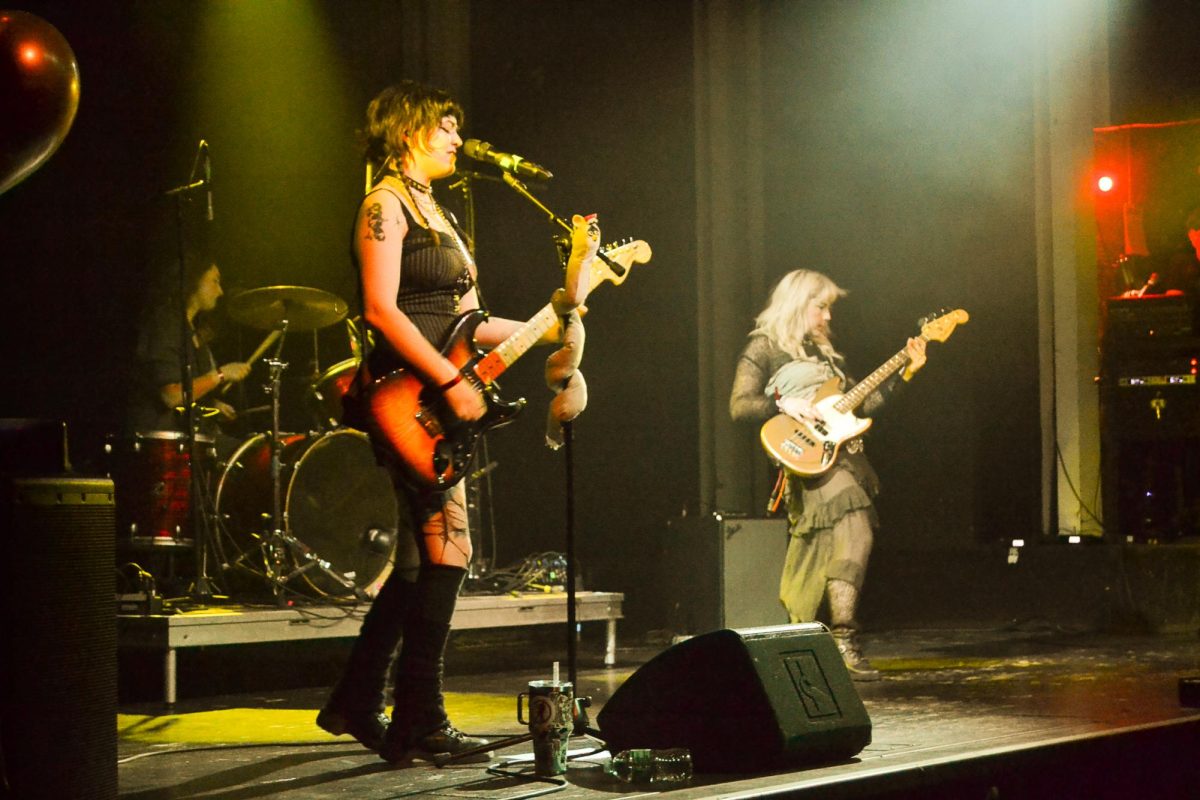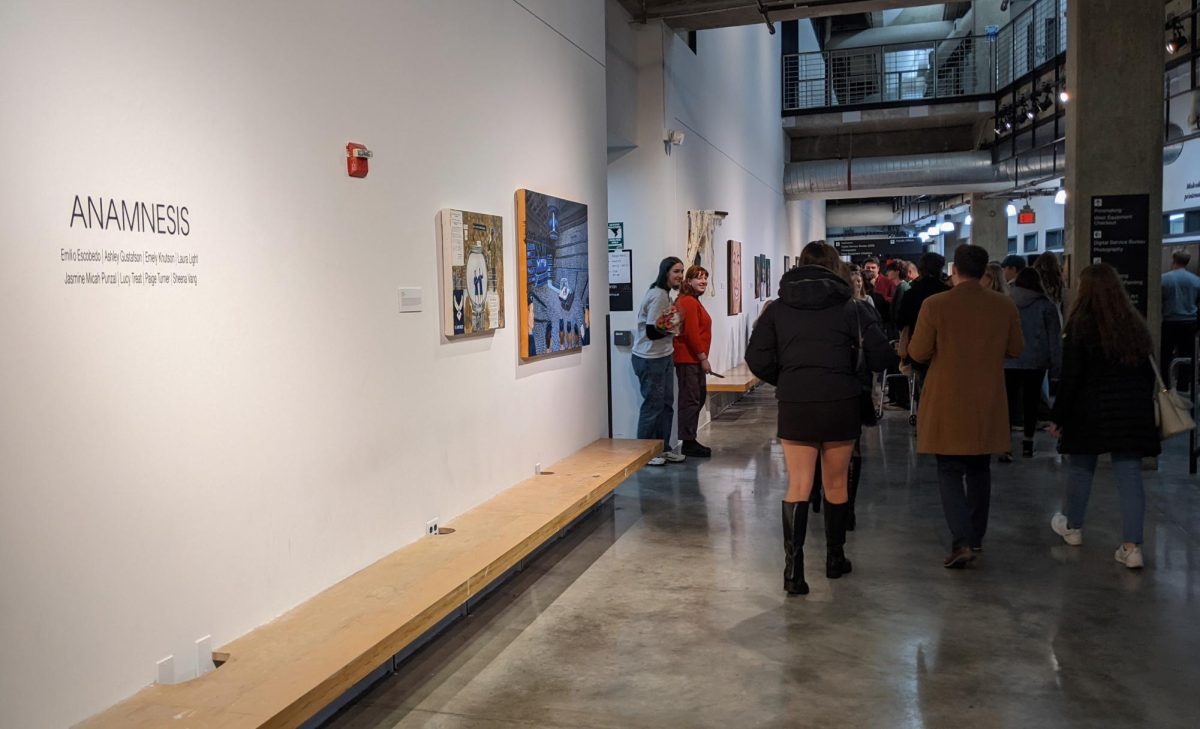Glittering metaphors and powerful performance are the key factors to any successful spoken word poem. The poet behind the work is equally important — they bring the personality and stories to the stage.
On Oct. 3, Button Poetry hosted a poetry slam with featured artist Rachel Wiley. A pre-show workshop was also hosted.
Wiley isn’t a slam novice – she’s a two-time finalist at the National Poetry Slam Competition and has her own book of poems, “Fat Girl Finishing School.” Her poem, “10 Honest Thoughts on Being Loved by a Skinny Boy,” has received over a million views on YouTube.
“I first heard about slam poetry in one of my performance classes, but it didn’t register as anything I would ever really do,” Wiley said.
A theater major in college, Wiley started doing slam poetry to create her own character and define her own standards.
“As a theater person, I was always typecast as mothers. I sort of saw this opportunity [with slam poetry] to be anything I wanted to be … powerful, and to be playful sometimes — to be allowed to do that on my own terms,” Wiley said.
Though she never received any formal slam poetry training, Wiley shared that this is not always necessary. Outside of her performance training from her theater degree, she had a willingness — and perhaps an immediate need — to dive into the slam world.
“I just started out by watching slams. I was living in a house with really terrible roommates, so I started hiding out at slam … just watching it and sort of applying everything I already knew about performance to it.”
Wiley still appreciates others’ slam poetry and emphasizes its importance in shaping one’s own work. How does she know if she likes a poem or not? It’s pretty simple.
“The biggest compliment that I can think of is, ‘Man, why didn’t I write it?’ If I’m jealous, that’s how I know,” she said .
In terms of her own work, Wiley found poetry as a place of personal development. “When I started doing poetry, I was very adamant that I would not talk about my body. If I didn’t talk about it, they wouldn’t notice,” Wiley said.
This didn’t last long. Slam poetry’s malleable, individualized nature became Wiley’s platform for change.
“I just decided that I would own this. Like poetry, [body positivity] is something you never really reach the pinnacle of. Using slam poetry as a soap box … I found my empowerment that way,” Wiley said.
This is what Wiley considers the key to successful slam poetry. The language and performance of a poem are obviously important, but success is found in a far more introspective, personal place.
“Find the ways that you’re tethered, the things that are really keeping you from going at it, and untether yourself. The [freer] you are onstage … the more people will just go with you. That’s what it is for me: connecting with people,” she said.
Before Monday’s poetry slam, Wiley hosted a free pre-show workshop for those looking to expand their spoken word range.
“She had us write about a part of our body that we hated, and then write either a love letter or an apology letter to that specific body part. I thought that was really interesting and a really cool lesson in self-love. She’s also just a really cool person. Very down to earth and very funny,” Gwin Harrison, a freshman at the University of Minnesota studying English, said.
Self-love was a running theme throughout the night, with slam contestants and Wiley herself sharing work about body positivity from varying perspectives.
For those uninterested in the topic of self-love, Wiley had one message:
“I’m going to talk a lot about my body. If this offends you, I invite you to buy me a fucking quesadilla,” she said.








